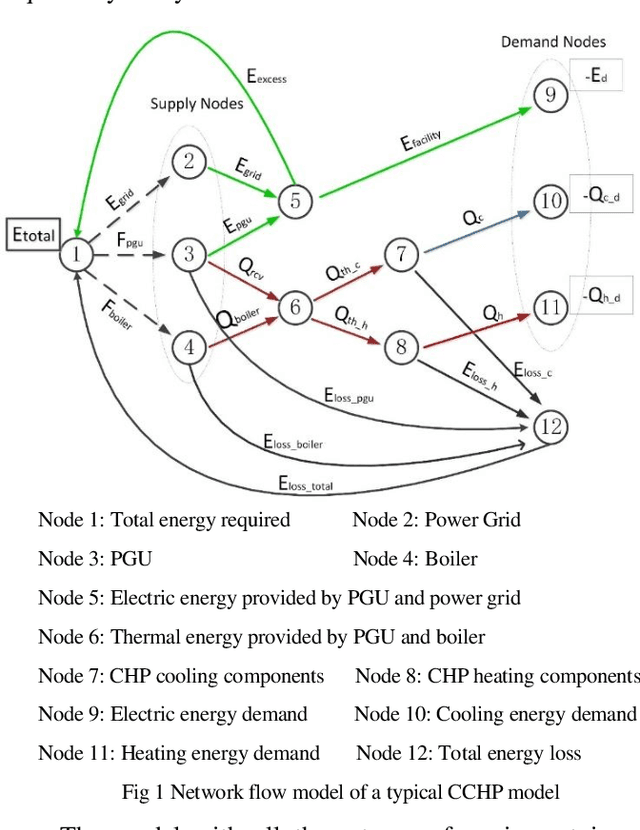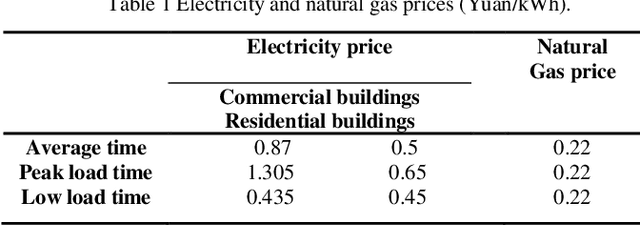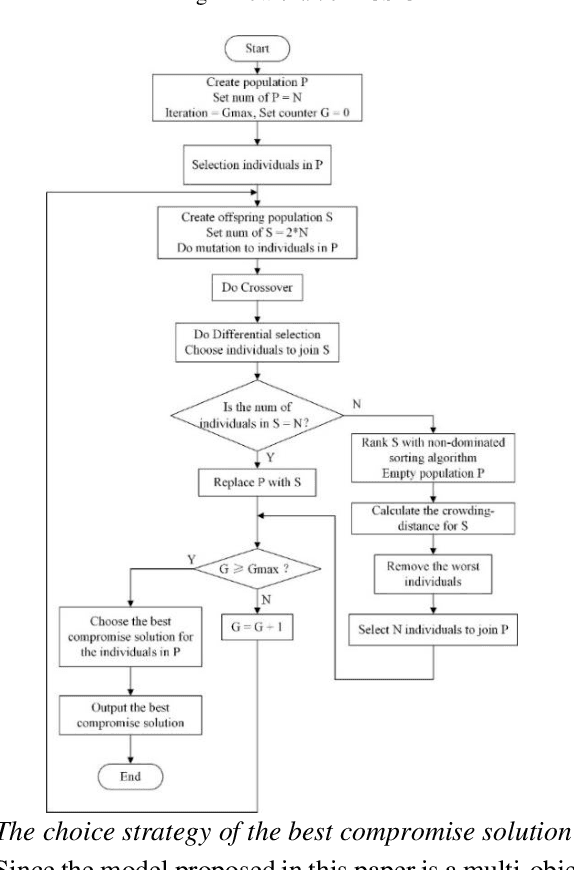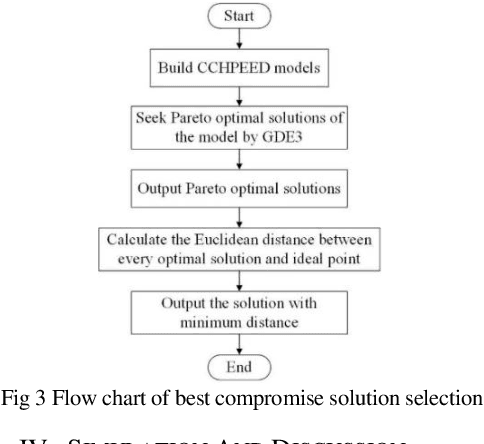Jiahui Deng
A BCS-GDE Algorithm for Multi-objective Optimization of Combined Cooling, Heating and Power Model
Aug 17, 2021



Abstract:District energy systems can not only reduce energy consumption but also set energy supply dispatching schemes according to demand. In this paper, the combined cooling heating and power economic emission dispatch (CCHPEED) model is established with the objective of economic cost, primary energy consumption, and pollutant emissions, as well as three decision-making strategies, are proposed to meet the demand for energy supply. Besides, a generalized differential evolution with the best compromise solution processing mechanism (BCS-GDE) is proposed to solve the model, also, the best compromise solution processing mechanism is put forward in the algorithm. In the simulation, the resource dispatching is performed according to the different energy demands of hotels, offices, and residential buildings on the whole day. The simulation results show that the model established in this paper can reduce the economic cost, energy consumption, and pollutant emission, in which the maximum reduction rate of economic cost is 72%, the maximum reduction rate of primary energy consumption is 73%, and the maximum reduction rate of pollutant emission is 88%. Concurrently, BCS-GDE also has better convergence and diversity than the classic algorithms.
 Add to Chrome
Add to Chrome Add to Firefox
Add to Firefox Add to Edge
Add to Edge